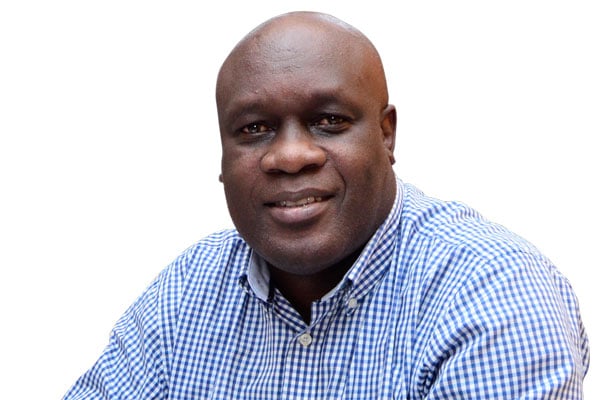Freedom of press vs right to be forgotten

Author: Odoobo C. Bichachi is the Nation Media Group (NMG)-Uganda public editor. PHOTO/FILE.
What you need to know:
- Indeed this charter is the bulwark of media freedom that we enjoy (or aspire to) today, having been specifically [provided for under Article 19.
When the general assembly of the recently formed United Nations Organisation (UNO) adopted the Universal Declaration of Human Rights (UDHR) on December 10, 1948 at the Palais de Chaillot in Paris, France, the charter became the framework that would ensure the rights and freedoms of all human beings.
Indeed this charter is the bulwark of media freedom that we enjoy (or aspire to) today, having been specifically [provided for under Article 19.
A lot has changed since then and the broad 30 articles of the charter have birthed secondary rights, so to speak, arising out of today’s peculiar circumstances. One of these emerging rights is the “right to be forgotten” or the “right to erasure”.
This right has only recently been adopted by the European Union but has found resonance in the USA and Canada. It is anchored in the EU’s General Data Protection Regulation (GDPR).
The right to be forgotten “reflects the claim of an individual to have certain data deleted so that third persons can no longer trace them.” It has been defined as “the right to silence on past events in life that are no longer occurring.” –Wikipedia.
This right was apparently born out of the fact that the internet does not forget!
Information on anyone can exist in perpetuity and keep cropping up – for good or for bad. The right to erasure therefore seeks to allow individuals to wipe clean their slate and have a second chance. But this is precisely why it is controversial and faces a lot of headwinds.
Many organisations like banks, hospitals, insurance, etc do collect and hold data from or about individuals. There is, however less controversy about recalling data or personal information from these institutions as there is with media.
Why? The media is a repository of history, a chronicler of events and persons, etc. However some media, like radio and television are transient and shed off the information gathered in a short timeframe on account of the high cost of storing it in servers, etc. Other media like print and online are more or less permanent and information published there is stored forever at almost no cost. These are therefore the most cited by those pushing for the right to erasure.
Who wants a clean slate? A good example is individuals named in corruption scandals that have been tried and cleared. These would like to have their records wiped clean because after all the accusations were false and are no longer important for the public!
The contrary point, mostly championed by journalists is that we cannot just assume that the accusations were never levelled and the trial never happened!
This argument certainly holds where the media has accurately chronicled the events. How about where the media has got things wrong, like routinely happens especially in the developing countries like Uganda? Does the media have the right to leave in public domain false information it published about individuals for posterity?
There are certainly no quick answers and this dilemma is well captured by Ivor Shapiro and Brian MacLeod Rogers in their paper, “How the ‘Right to be Forgotten’ Challenges Journalistic Principles: Privacy, freedom and news durability.”
They write thus: “The principles of free expression, historical integrity and accountability favour continuity of publication, while opposing values include harm reduction, privacy and redemption.”
This right is not yet being asserted in Uganda so journalists may continue the luxury to write and move on without looking back. But perhaps not for long. It shall come here too.
In the USA, a few American newsrooms are leading the way in engaging with this new right. They’re putting moral considerations above financial ones to implement their own policies of un-publishing and amending articles that should not really stand as a public record.
“They have designed an ‘article removal request’ form for people accused of criminal activity in stories. They ask only that the person themselves makes the request, that the charges have been dismissed in court or that the person has served their time and/or had the charge expunged from their record,” Akintunde Ahmad (www.cjr.org/the_media_today/right-to-be-forgotten.php).
The media in Uganda may as well start thinking about this new right
Send your feedback/complaints to
[email protected] or
call/text on +256 776 500725.




